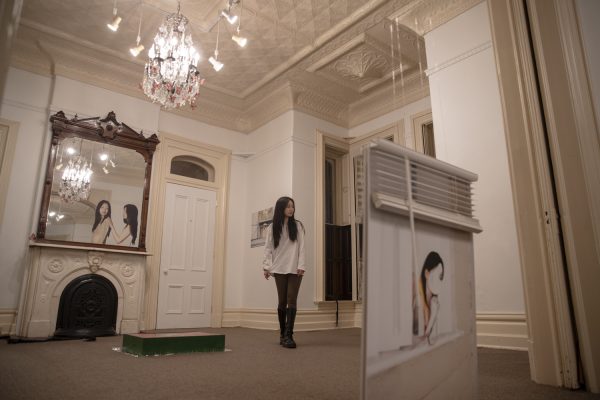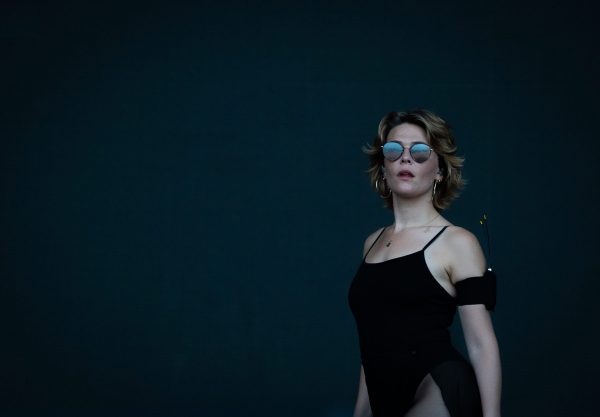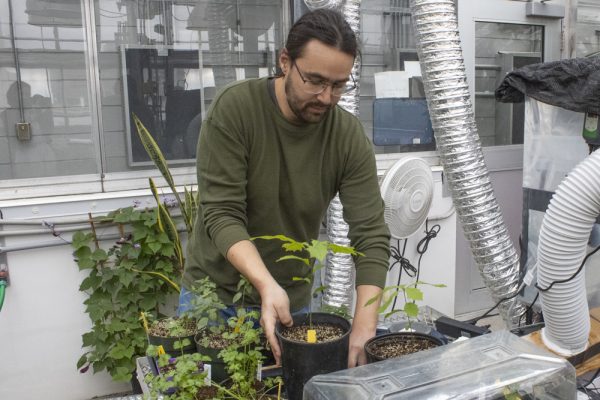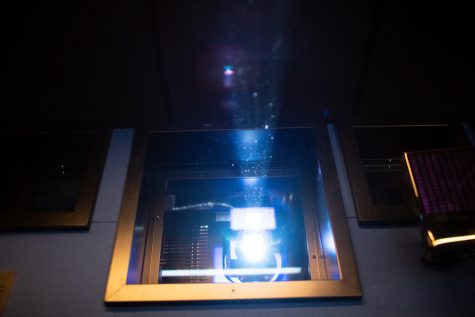UI Theatre Department’s ‘Borderless’ boosts Latinx voices with first production
Borderless, a new series centering on diverse narratives, is putting on its first virtual production. Ghost Limb sheds a light on a humanitarian crisis in Argentina through the human experience of loss and love.
October 1, 2020
This semester, the University of Iowa’s Theatre Arts department will introduce a series dedicated to diversity and collaboration. Borderless, launched in March under the name Diverse Voices, is an initiative that brings stories from around the globe to the professional theatre world and the Iowa City community. Borderless works in collaboration with the Latino Native American Culture Center at the UI. It also aims to put perspectives that often aren’t put onstage at Predominantly White Institutions into the spotlight.
While performing in a literal spotlight isn’t possible due to COVID-19 safety concerns, the team behind Borderless has worked to include alumni and non-theater students in the creation of their virtual productions.
The initiative has been led in part by Morgan Grambo, a recent graduate of the university’s Theatre Arts dramaturgy graduate program, in order to bring voices and stories representative of the greater playwriting community to the forefront.
“We knew we wanted to amplify particular stories, certain voices, and really get students involved from both our department and across campus,” Grambo said.
The series kicks off Oct. 4 with Ghost Limb by Marisela Treviño Orta, a graduate of the Iowa Playwrights Workshop who has received several awards, including the 2013 Latino Playwriting Award.
Ghost Limb is a fictionalized retelling of The Dirty War, a period in Argentine history when an estimated 30,000 civilians were imprisoned and murdered by the government for left-wing political stances.
In addition to telling the history of The Dirty War, Orta parallels the ancient Greek myth of Demeter and Persephone, a mother-daughter pair of goddesses, in her storytelling.
Ghost Limb follows Consuelo, a mother searching for her son, who was abducted by the Argentine government. In the myth of Demeter and Persephone, Persephone is abducted by Hades, God of the Underworld, and Demeter does everything in her power to reunite with her daughter.
Orta began writing the play in 2006, completing it during her time at the Playwrights Workshop. She said researching The Dirty War could be emotionally taxing at times, but she felt it was an important story to tell, so history wouldn’t be repeated.
“When I first started writing this play, I never thought it would be timely,” Orta said. “But where we are in our current moment as a country, it suddenly feels very present… I don’t even know how to put words to what that feels like.”
The production’s format is also modern. Because of the dramatic changes to theatre because of COVID-19, Ghost Limb can’t be presented on stage as it has been in the past. Instead, it will be released as a virtual script reading on the Theatre Department’s website and YouTube channel, with visual effects incorporated throughout.
Natalie Villamonte Zito, the play’s director, said lots of pre-production work was done to ensure a visually interesting experience for the virtual audience.
“In a way, this medium gave us a unique opportunity to add some visuals to help the audience recognize that even though this is a heightened reality, it’s based on something very real,” Zito said.
The pre-production team secured the rights to include actual photos of The Dirty War, which will be placed over relevant dialogue moments. In addition to the historic images, the show will also include art related to the Demeter and Persephone myth, and visual effects that simulate weather and the passage of time.
After the premiere, there will be a post-show discussion highlighting Latinx Heritage Month.
“Hopefully people will feel like they can engage more deeply in the post-show discussion and find a little glimmer of something from behind the scenes that deepens their experience,” Grambo said.
















